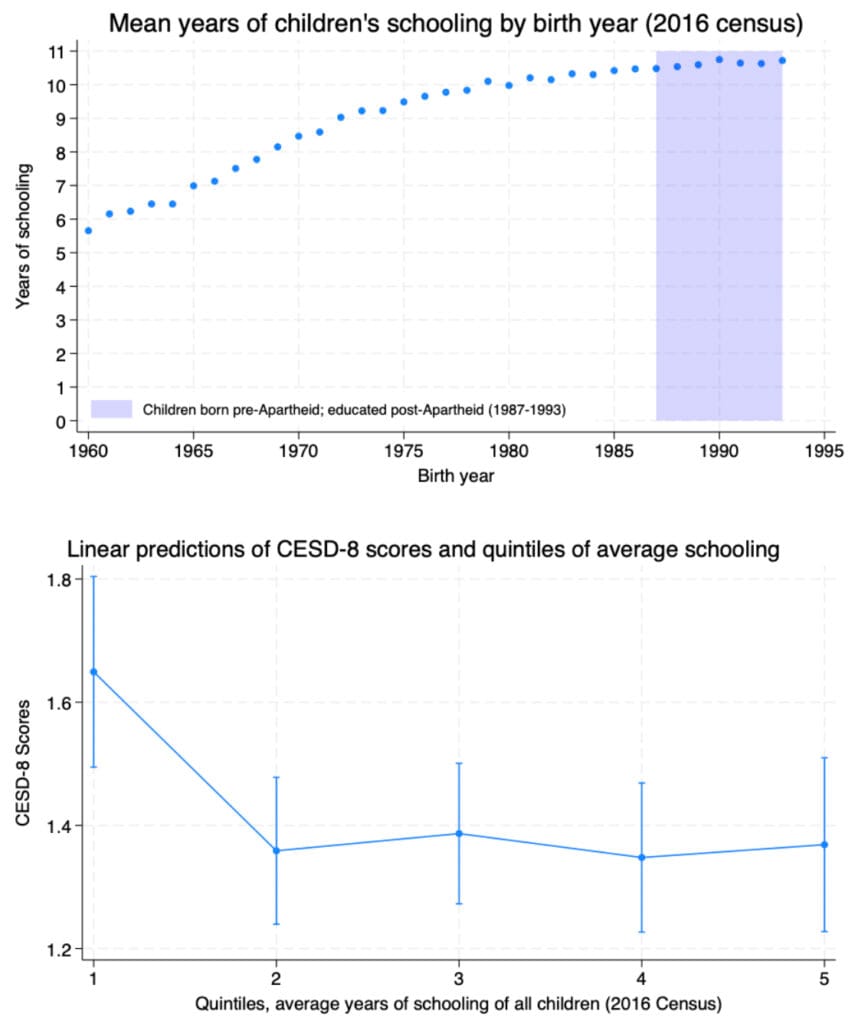Aging
Children’s Expected Educational Attainment and Depressive Symptoms Among Parents in a Rural Cohort of Older Black South African Individuals David Kapaon* David Kapaon Paul Ayernor Darina T. Bassil Jacqueline M. Torres Thomas Gaziano Kathleen Kahn Stephen Tollman Lisa F. Berkman M. Maria Glymour
Introduction: The impact of children’s education on the health of their parents is not well studied, especially in settings with rapid educational changes like South Africa. Under Apartheid, educational opportunities for Black South Africans were profoundly restricted. However, the transition to democracy brought new educational prospects for millions. We hypothesized that expanded educational opportunities for Black children after Apartheid benefited the mental health of their parents.
Methods: Health and Aging in Africa: Longitudinal Studies in South Africa (HAALSA) is a longitudinal cohort study of 5,059 Black South African individuals aged 40+ living in rural Mpumalanga Province, South Africa. Using the 2016 South African census, we calculated mean years of schooling for Black South Africans living in Mpumalanga by birth year (1960-1993), and merged them to children of parents in HAALSA by the birth year of each child. Years of schooling were averaged across all children of each HAALSA respondent and grouped into quintiles. Depressive symptoms (CESD-8) were reported by HAALSA participants in 2014-2015. We estimated GEE models, grouped by household, for associations between quintiles of children’s expected educational attainment and parents’ depressive symptoms, adjusting for number of children, as well as parental country of origin, years of education, and age.
Results: Children born in Mpumalanga between 1960-1986 averaged 8.66 (SD: 1.57) years of schooling, compared to 10.62 (SD: 0.09) for children born 1987 or later. Parents in the lowest quintile of children’s expected years of schooling [5.65 to 9.22 years] had higher (worse) CESD-8 scores than parents of children in the highest quintile (10.55 to 10.75 years; β = -0.33; 95% CI: [-0.56,-0.09]).
Discussion: Increased educational opportunities for children may have benefited the mental health of older parents, though more research is needed to evaluate other pathways and outcomes.

